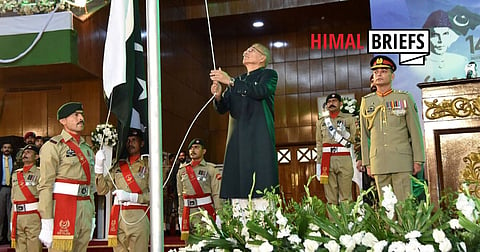Pakistan embraces military rule without martial law
In late July and early August this year, Pakistan's outgoing parliament passed two amendments that have significantly altered the political landscape in favour of the military establishment. The Army Act (Amendment Bill) 2023 and the Official Secrets Act (Amendment Bill) 2023 reflect, more than anything else, the very consistent decline in Pakistan's democratic politics since the end of Pervez Musharraf's regime in 2008. Both acts give primacy to the Pakistani military leadership and its security agencies in the development of the economy and the maintenance of law and order. More importantly, these laws have created jurisdiction for the military to operate at both the federal and provincial levels of the polity. This is likely to have serious implications for Pakistan's already precarious federation, which is facing multiple challenges including a separatist movement in Balochistan.
For instance, Section 175-E of the Army Act says, "The Pakistan Army may, upon direction or with the concurrence of relevant authorities of the appropriate government [federal and provincial] in the prescribed manner, directly or indirectly, carry out activities related to, inter alia, national development and advancement of national or strategic interest."

